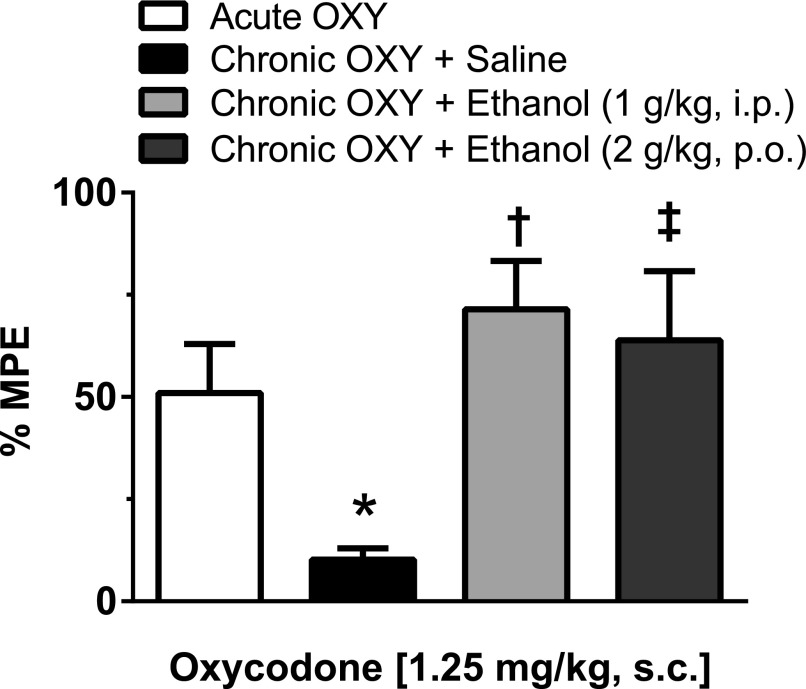Fig. 2.
Intraperitoneal and oral ethanol reversed antinociceptive tolerance to subcutaneous oxycodone. Mice were chronically injected with oxycodone (1.25 mg/kg, s.c.) or saline hourly for 6 hours and treated with saline, i.p. ethanol (1 g/kg), or PO ethanol (2 g/kg) prior to receiving a challenge injection of oxycodone (1.25 mg/kg, s.c.). Antinociception was assessed using the tail-immersion assay, where significant tolerance was displayed in mice chronically treated with oxycodone and no ethanol, compared with the acute oxycodone treatment group (*P < 0.05, one-way ANOVA). Two additional groups of mice were treated with repeated injections of oxycodone, but received either an injection of ethanol (1 g/kg, i.p.) or a gavage of ethanol (2 g/kg, PO) 30 minutes prior to receiving an oxycodone challenge injection. Ethanol treatment in these mice reversed tolerance development to oxycodone as seen by a restored response to the antinociceptive effects of oxycodone. Chronic oxycodone–treated mice given either i.p. ethanol (†P < 0.01) or oral ethanol (‡P < 0.05) displayed significantly greater antinociceptive effects in response to a challenge injection of oxycodone compared with chronic oxycodone mice given saline prior to an oxycodone challenge (one-way ANOVA). All groups are represented by a minimum of five mice with data shown as the mean ± S.E.M.

